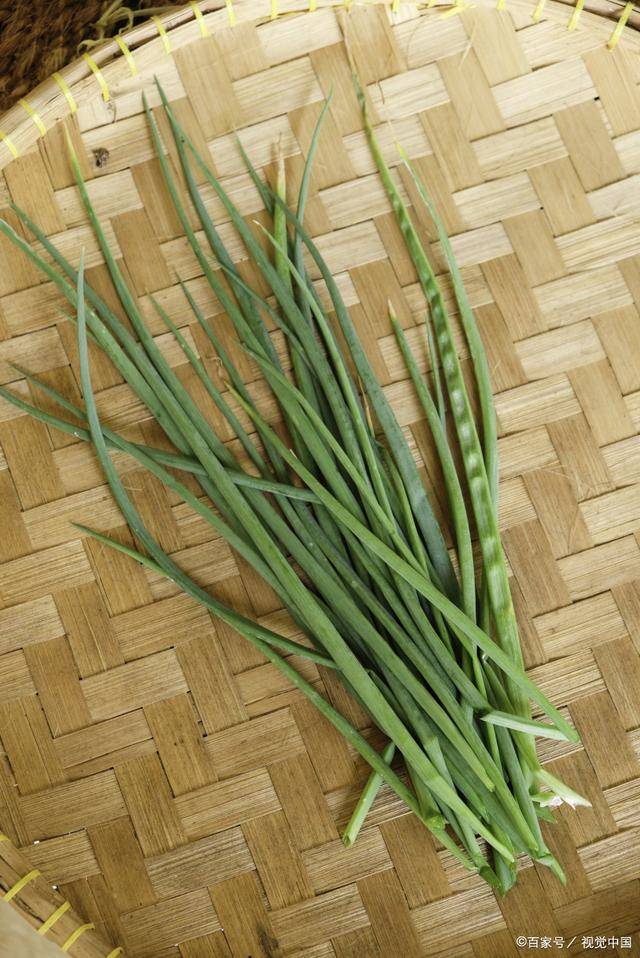Can high blood pressure eat leeks? Reminder! To stabilize blood pressure, it is best for vegetarians to eat less of these five types of food normally.
High blood pressure, as a common chronic disease, has gradually become a major hidden danger to modern people’s health. Faced with the threat of high blood pressure, many patients hope to improve their blood pressure condition through dietary adjustments. Among them, leeks, as a common vegetable, have become a concern for many people on whether they are suitable for hypertension patients to eat. This article will discuss this topic and remind everyone that to stabilize blood pressure, there are five types of vegetarian foods that are best eaten less often.
1. Leeks and high blood pressure
Leeks are a nutritious vegetable, rich in vitamin C, vitamin B, niacin, carotene, as well as calcium, phosphorus, iron, and other trace elements. In traditional Chinese medicine theory, leeks have the effects of nourishing yang and kidney, and promoting blood circulation. So, can hypertension patients eat leeks?
Hypertension patients can eat leeks in moderation. Leeks have a high content of potassium, which helps maintain the balance of sodium and potassium in the body and has a certain auxiliary effect on blood pressure reduction. At the same time, the dietary fiber in leeks also helps lower blood lipids and improve intestinal function. However, it is important to note that leeks are warm in nature, and excessive consumption may lead to symptoms such as internal heat and dry mouth. Therefore, hypertension patients should control their intake of leeks in moderation.
2. Five types of vegetarian foods to eat less of for stable blood pressure
Although leeks have certain benefits for hypertension patients, to maintain stable blood pressure, attention should also be paid to the usual dietary structure. The following five types of vegetarian foods are best eaten less frequently by hypertension patients:
Pickled vegetables, preserved foods: Pickled vegetables and preserved foods contain a lot of salt, and salt is the “big enemy” of hypertension. Excessive salt intake can lead to an excessive amount of sodium ions in the body, resulting in water-sodium retention, increased blood volume, and elevated blood pressure. Therefore, hypertension patients should try to reduce their intake of pickled vegetables and preserved foods. Fried vegetarian foods: Fried foods are not only high in calories but also have a high fat content. Long-term excessive intake of fats can lead to elevated blood lipids, increase vascular burden, and be detrimental to blood pressure control. Therefore, hypertension patients should try to avoid consuming fried vegetarian foods such as French fries and fried tofu. High-sugar vegetarian foods: High-sugar foods can cause blood sugar fluctuations, leading to abnormal insulin secretion and affecting blood pressure stability. In addition, long-term high-sugar diets may also lead to complications such as obesity and diabetes, further aggravating the condition of hypertension. Therefore, hypertension patients should limit their intake of high-sugar vegetarian foods such as desserts and candies. Spicy vegetarian foods: Spicy foods can stimulate the gastrointestinal tract, increasing the risk of elevated blood pressure. At the same time, spicy foods may also increase the burden on the heart, which is unfavorable to the health of hypertension patients. Therefore, when consuming vegetarian foods, hypertension patients should try to avoid overly spicy seasonings and ingredients. Strong tea, coffee: The caffeine in strong tea and coffee has a stimulating effect, causing an increase in heart rate, vasoconstriction, and resulting in elevated blood pressure. In addition, the theine in strong tea may also have adverse effects on blood pressure. Therefore, hypertension patients should try to drink less or avoid strong tea and coffee in their daily diet.
3. Dietary recommendations for hypertension patients
In order to maintain stable blood pressure, hypertension patients should follow the following principles in their diet:
Low-salt diet: Strictly control salt intake, with a daily salt intake not exceeding 6 grams (about the size of a bottle cap). Avoid high-salt foods such as pickled vegetables and preserved foods. Low-fat diet: Reduce the intake of fats, especially saturated fats and trans fats. Choose healthy fat sources such as olive oil, fish oil, etc. High-potassium diet: Increase the intake of foods rich in potassium in moderation, such as bananas, potatoes, mushrooms, etc. Potassium helps maintain the balance of sodium and potassium in the body, which is beneficial for lowering blood pressure. Increase dietary fiber intake: Eat more foods rich in dietary fiber, such as whole grains, legumes, vegetables, etc. Dietary fiber helps lower blood lipids and improve intestinal function. Moderate protein intake: Choose lean meat, fish, eggs, and other high-quality protein sources to meet the body’s protein needs. At the same time, avoid excessive protein intake to avoid overburdening the kidneys. Maintain a balanced diet: Rationally combine various foods to ensure an adequate intake of vitamins, minerals, and trace elements. Avoid bad eating habits such as picky eating or overeating.
#Graphic icon ten thousand fans incentive plan#4. Summary
Hypertension patients should pay special attention to their diet. Eating leeks in moderation has certain benefits for blood pressure, but to stabilize blood pressure, attention should also be paid to the usual dietary structure. Try to avoid consuming pickled vegetables, preserved foods, fried vegetarian foods, high-sugar vegetarian foods, and spicy vegetarian foods that are detrimental to blood pressure control. In addition, following the principles of a low-salt, low-fat, high-potassium, high-fiber diet, maintaining a balanced diet can help better manage blood pressure health.


